|
Acts 4:13, NIV When they saw the courage of Peter and John and realised that they were unschooled, ordinary men, they were astonished and they took note that these men had been with Jesus. The Jewish leaders knew Peter and John had been with Jesus. Not because of their education; they had no formal religious training. Not because of their credentials or pedigree; they were ordinary, working men. What set them apart was their Spirit-led boldness born out of knowing Jesus, learning from him, spending time with him, and imitating him. I find it really interesting that the passage goes on to tell us the believers: *asked the Lord to look on the threats they’re facing and *asked him to give them increased boldness as he continued to carry out signs, wonders and miracles AND they got what they ask for! Verse 31 says: "when they’d prayed, the place they were in shook, they were filled with the Holy Spirit, and they carried on speaking boldly." Which tells me all we need to do is ask. We don’t need to take into account the circumstances or consider the opposition. We simply need to ask the Holy Spirit to fill us and we will receive the same Spirit-led boldness born out of knowing Jesus, learning from him, spending time with him, and imitating him. Will people know you've been with Jesus today? Commit to telling people about him, and then stand back and watch him perform the miracles. Until next time. L x 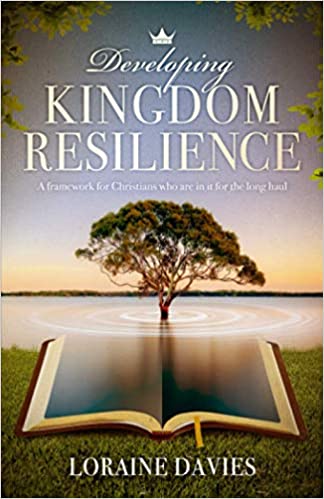 PS: I wrote a book on developing resilience. It's getting great reviews and you can buy it here. I'd love to know what you think.
0 Comments
1 John 3:1, NIV See what great love the Father has lavished on us, that we should be called children of God! And that is what we are! I'm starting a new series this month on the Best Bible Verses ever (in my opinion, of course) starting with this beautiful truth from 1 John. We watch Strictly (there, I’ve said it!) and every time I watch it I can’t help but be aware of the complexity of relationships. We heard from a contestant's mum who hoped her daughter's dress wouldn't be too short. Another dancer was concerned about what her mum would think of her performance of a very sensuous Argentine tango. A third competitor wiped away tears as he saw a recording of his little girl dancing... Human relationships - at their best - are glorious. But this verse tells us the relationship we can have with God is even more glorious than the very best of human bonds. The word lavish means elaborate, rich, luxurious and the Father's promise is always to lavish his love on you. In fact, he says nothing will ever separate you from that lavished love. You can be completely secure in that. Like the contestant's mum he is protective and wants the best for us. Like the dad, he is proud and profoundly in love with us. But he isn't changeable or flawed in the way humans can be. God is love and he will lavish his love on us for eternity. We are called children of God. Until next time. x PS: I wrote a book on developing resilience. It's getting great reviews and you can buy it here. I'd love to know what you think. 1 Thessalonians 5:11, ESV "Therefore encourage one another and build one another up" In the last part of the mini-series I've called "Be more Paul" I want to look at how we can learn from Paul as he invests in others. Paul preaches the gospel to kings, rulers, scholars and philosophers. But it is his work with the people he releases into ministry that has the biggest impact on the spread of the gospel. He teaches new Christians in such a way they not only understand the truth of the good news but also the need to demonstrate the love of Jesus to their communities. He builds teams of equals and releases them to use their gifts. Take a look at Colossians 4. Paul ministers alongside converted Jews, Greeks, males, females, a doctor. And Onesimus. A runaway slave, a thief who has stolen from his master, who somehow, has met Paul, come to faith in Jesus and is serving him as Paul writes. And what is significant is we don't know Onesimus' background from the letter Paul writes to the the Colossians. Because that is a public letter and will be read out loud in the churches at Colossae and Laodicea. To them Onesimus is described as "our faithful and beloved brother." (Colossians 4:9, ESV.) We only know he was a thief and a slave from the private letter Paul writes to Philemon, Onesimus' master. Paul pours himself into Onesimus' life, honours, and elevates him. And why wouldn't he since Jesus has already done that? I don't know who Jesus is bringing alongside you ow but I know you have an opportunity to change they way they feel about themselves and the how others see them simply by the way you invest in them, honour, and elevate them. Be more Paul. Build something of enduring purpose by pouring your life into other people. Until next time. x PS: I wrote a book on developing resilience. It's getting great reviews and you can buy it here. I'd love to know what you think. Acts16:9-10, NIV
"During the night Paul had a vision of a man of Macedonia standing and begging him, “Come over to Macedonia and help us.” 10 After Paul had seen the vision, we got ready at once to leave for Macedonia, concluding that God had called us to preach the gospel to them." I wrote last time about the unbiblical viewpoint some commentators promote that suggests Paul was special and none us can be as influential in the \kingdom as he is. But I want to encourage you not to be settle for less so here is my second observation - taken from Paul’s life - of a way you can be more Paul. This month it's to be passionate about Jesus and follow the dreams he gives you. Paul is one of the most influential figures in human history. He channels all his energy into building the Church, he dreams big. But he is not driven by goals, actions, or ambitions. There’s nothing wrong with a good plan, but we don’t change the world by having a great strategy. We change the world by having a great Saviour. Paul proves this. He has an idea for a missionary journey to Asia, but the Holy Spirit blocks it.[1] Then Paul dreams of a man from Macedonia who asks him to come and help them. And it makes no sense for Paul to follow that dream - it is two hundred miles in the opposite direction and involves a sea crossing - but he goes. And he goes expecting to share the gospel in his normal place which would be to men in the town’s synagogue. But - when he arrives - there isn’t a synagogue. So he can’t preach to men, but he does find a group of women at a prayer-house by the river. One of whom is Lydia, an independently wealthy business owner. She and her entire household are baptised. It is in her home that the church at Philippi first gathers and she is most likely the person who leads that congregation. It is likely, too, she becomes a patron of Paul’s and helps fund his ministry. Imagine the extent of her influence. And imagine how much would have been lost to the Kingdom if Paul hadn’t followed the dream. When we are passionate about Jesus, driven by our love for him, and filled with an insatiable longing for others to know him he takes us on the most extraordinary journey. And sometimes we’ll think we’re heading one way and doing things the way we’ve always done them, but he will completely change the direction and stir us up to do something new. And in doing that he will achieve more through us than we would ever be able to achieve for ourselves. Be more Paul. Be passionate about Jesus and follow the dreams he gives you. Until next time x [1] Acts 16:6-7 Acts 9:1-20, NIV
"Meanwhile, Saul was still breathing out murderous threats against the Lord’s disciples. He went to the high priest and asked him for letters to the synagogues in Damascus, so that if he found any there who belonged to the Way, whether men or women, he might take them as prisoners to Jerusalem. As he neared Damascus on his journey, suddenly a light from heaven flashed around him. He fell to the ground and heard a voice say to him, ‘Saul, Saul, why do you persecute me?’ ‘Who are you, Lord?’ Saul asked. ‘I am Jesus, whom you are persecuting,’ he replied. ‘Now get up and go into the city, and you will be told what you must do.’" If you know me at all you’ll know I am a bit of a bible nerd. I love digging into the original Hebrew and Greek and reading about the context in which a passage is written. I look at cross references and compare versions. And I also look at commentaries to find out what other people think. Which is exactly what I did here with Acts 9 as I prepared for a preach. And I’m going to have to be honest with you. I got annoyed. Because I kept stumbling across a very strange, and frankly unbiblical, viewpoint. And the viewpoint was that Paul was special and Ananias was not. Paul did more for the church than Ananias ever did. Paul was uniquely placed to be an apostle, a church planter, and a teacher of truth. Whereas Ananias was just an ordinary guy hanging around his house, waiting for the Lord to appear to him in a vision, ready to do whatever he was told. (Doesn’t sound very ordinary to me!) For some reason the thinking was - well - everyone can be an ordinary Ananias, but no-one can be as special as Paul. And, what frustrates me is the premise of that argument. It says that God places higher value on Paul’s ministry than he does on Ananias’. Which is simply not true. God shows no partiality.[1] It also makes me angry because of the singular lack of ambition. That view - be ordinary, not special - actively discourages us from wanting to be more, to grow into all we can be for Jesus. And that’s not God’s intention at all. It’s Paul himself talks about pressing on toward the goal to win the prize for which God has called him.[2] There’s always more with Jesus. So, I’m grateful to Ananias. He shows us we can have an honest relationship with the Lord in which we can ask questions to understand what it is he wants us to do. I’m thankful for his obedience, his charity, his faith, and the impact I know he had in a life that is not recorded in the Bible. But I really want to encourage you not to be ordinary. To push the limits, not to settle for less. And to do that I have a few suggestions - taken from Paul’s life - of ways you can be more Paul. Starting with: Be more Paul: Let Jesus call out everything he has placed in you There are two important things about the way Jesus addresses Saul/Paul in this passage. Saul is a Jew but also a Roman citizen and so has both a Hebrew name - Saul - and a Latin name - Paulus - which in Greek is Paul. The names are interchangeable. But in Hebrew culture a person’s name was more than just a label; it signified who the person was. In the Old Testament when God called a person by name, he called out everything he had placed in them. He encouraged them to be all he made them to be, and to connect to his love and purposes. Jesus does the same with Saul. Saul means “asked for of God, prayed for” and as Jesus calls Saul’s name there is an implicit reminder to Saul that he is a gift from God and has God-given purpose. Jesus also uses Saul’s name twice. When Hebrews wanted to express a close, intimate relationship with each other they would use the other person’s name twice. God does this when he speaks to Abraham, Jacob, Moses, and Samuel in the Old Testament. Jesus uses the same model with Martha, Simon Peter, his own Father from the cross (Eloi, Eloi - my God, my God why have you forsaken me?) and here, with Saul. This tells us Jesus loves Saul with a deep, abiding love - even as Saul persecutes him - and is inviting Saul to respond to that love.[3] And, of course, Saul says ‘yes’ to Jesus. And that ‘yes’ transforms his life but also changes the lives of millions of others. You can do the same. You can tune in to Jesus[4] calling your name twice right now. He is doing it to call out everything he has placed in you. To encourage you to be all he made you to be, to connect with his love and purposes, and transform your life and the lives of others. Be more Paul. Let Jesus call out everything he has placed in you, Until next time x [1] Acts 10:34 [2] Philippians 3:14 [3] https://torahmitzion.org/learn/hearing-call-hashem-5766/ [4] Ephesians 2:5 I've held off posting blogs while the Lent Devotions are running. The next one will be posted on 17 May. I can't wait! You? 1 Thessalonians 5:12-24 The one who calls you is faithful and he will do it! I wrote last time that however unprecedented 2020 has been, however much change we’ve had to adapt to, we’re not done with change. And the Church needs to be front and centre of helping people navigate their way through an ever-changing landscape. But to do that we’re going to have to exercise great faith. You have to use it or lose it A summary of the verses 16-22 could be “you have to use it or lose it.” In a recent preach I said we can’t leave our faith lying around on the sofa getting fat; we have to exercise it. We walk by faith, not by sight. As we move from an unprecedented time into an unpredictable one, we will not naturally be able to plan for changes. Which means we will need revelation. The only way we are going to be able to plot a course through this particular landscape is if we rely on our spiritual insight, not our natural experience. Because Scripture tells us it's only when our natural resources come to an end (Elijah and the oil, Jesus and the wine) that the supernatural provision begins. And it is crucial we grab hold of two principles. First, that what we did in the past will not serve us in the future. Bernie prophesied that at the same time as he prophesied the shaking we’re now experiencing. The past is for reference, not for residence. God is doing a new thing. And we have to be aligned with what he is doing now. Second, in 2021, if we look to the circumstances more than we look to the Lord, we will face an uphill battle because our faith will be shaped by the inferior things of the world not the superior things of the Father. The consistent challenge from God to me this year has been to come up higher in order to look and see what HE is doing. Because he has the bigger picture. He has the insight and knowledge and plans and strategies to enable me to fulfil his purposes even in this extraordinary time. And he has them for you, too. But it takes great faith to believe in the possibility of going higher. It takes great faith to believe God has more for us. It takes great faith to think God might be able to use us for his purposes. And I just want to say something here about busyness. The world has made an idol of busyness and we’re in danger sometimes of bowing to that idol. We can be out every night at a church meeting, doing horrendous hours at work, running from one community service opportunity to another and still not be exercising great faith because we’re so busy we have missed the still small voice of God that tells us where he wants us be and what he wants us to do. Nor does “exercising great faith” mean that we do it in our own strength. Peter shows us that. There is no more determined or bullish disciple. “I will never deny you!” he says to Jesus. But we know how that ends. Compare that to John - the disciple Jesus loves - whose most profound and significant acts are resting his head against Jesus’ chest at the last Supper and then being the only disciple at the foot of the cross publicly acknowledging his love for Jesus. Our ability to exercise great faith is a product of our surrender to Jesus. Which is why Paul tells us to 16 rejoice always, 17 pray continually, 18 give thanks in all circumstances; 19 don’t quench the Spirit. 20 don’t treat prophecies with contempt 21; hold on to what is good, 22 reject every kind of evil. Those things position us both close to the heart of God and at the foot of the cross. In 2021, we are not going to be able to go the distance if we’re keeping our distance from God. Exercise great faith. You have to use it or lose it Until next time L x 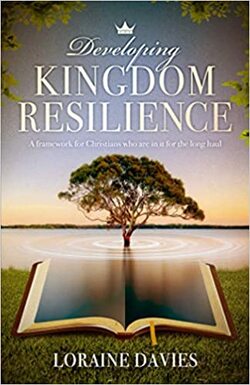 PS: I wrote a book! You can find it here: https://www.amazon.co.uk/Developing-Kingdom-Resilience-Loraine-Davies-ebook/dp/B08QNCQB4R or here: https://books.apple.com/gb/book/developing-kingdom-resilience/id1545454087 I'd love to know what you think! 1 Thessalonians 5:12-24 The one who calls you is faithful and he will do it! Probably the most significant revelation I’ve had this last year has been the importance of exercising great faith. Of trusting God when I don’t understand what he’s doing. Of holding on to all his promises. Of not losing heart. Of trying to see things as God sees them. Because in the best moments - when I‘ve seen the selflessness of frontline workers and the rush of volunteers and the care we’ve shown each other by keeping our distance and wearing our masks - I have heard a shout from heaven of celebration. A “Yes, Lord!” that has echoed in the throne room of God. Because, in those moments, God has proved that he is right not to give up on us, right to love us, right to have so much hope in us because from time to time we’ve demonstrated that when he said he created something good, he did. And in the worst moments - when I’ve been confronted with injustice and discrimination and watched fear and protectionism drive people to stockpile and make very, very selfish decisions - I have heard a different shout from heaven. A shout that recognises how badly we get it wrong sometimes, and how desperately we need a Saviour. A shout that tells us that Jesus is the only one who can answer the deepest needs of every human being. But the shout isn’t directed at Jesus, he’s already done what he needs to do. The shout is directed at us - his church. “Come on. Come on Church! Don’t give up. You’re not done yet. There is more. Exercise great faith.” You see, the truth is however unprecedented 2020 has been, however much change we’ve had to adapt to, we’re not done with change. I don’t think the shaking is finished yet. There is more to come. And the Church needs to be front and centre of helping people navigate their way through an ever-changing landscape. But to do that we’re going to have to exercise great faith. And this is why we’ve read this passage from Thessalonians today. As a church, they, too, were facing uncertain times and needed instruction on how to be united as a body of God’s people and how to impact the community for Jesus. I think there are three things in this passage that help us, too. I'm going to cover them in the next three blogs. Starting with… If I were to summarise the beginning of this passage I would suggest Paul is saying “you have to be in it to win it.” You have to be in it to win it It’s been suggested there was confusion in the church because they were assuming Jesus was returning imminently and, as a result, a number had stopped working - both to earn a living and in service of the Kingdom. But Paul writes two letters to the Thessalonians and in both he reprimands people who are not pulling their weight. Which suggests there wasn’t a misunderstanding that needed to be addressed but a mindset. And - translations vary - some describe those who are caring for others in the Lord as church leaders but I’m not sure Paul is particularly concerned about titles; I think he’s much more concerned about heart. So, he directly compares those who are working to care for others in the Lord and those who aren’t. Those who are working hard are to be held in the highest regard in love. But the others - the ones he calls idle and disruptive - are to be warned. Because the implication is they are getting in the way of God’s purposes. The word Paul uses here describes a soldier who has left the ranks, who is out of order. This year, I have seen our leaders and the discipleship group leaders, our children's workers and tech team, the pastoral team and countless others serve and care for us. And I estimate that it has probably taken them four or five times as long and four or five times the effort to fulfil their roles because of the physical limitations, the way we’ve been separated, the technology challenges, and the constant need to communicate with us in order to care for us. And I haven’t been able to watch people in their workplaces, but I suspect they would say they have been impacted in the same way. Paul says as church we should hold them in the highest regard in love because of their work of care. Because Paul knows that doesn’t just build unity in our church it speaks powerfully to others in our community about the importance of honouring Jesus and each other. And, obviously the description “idle and disruptive” doesn’t apply to any of you because you’re all lovely. But as we move in to 2021 I suspect there will be times when it will be difficult for us to exercise great faith. To exercise great faith in each other, and in the greater purposes of God. But we will need to do it anyway because it is impossible to preach the gospel in a place where there is no faith. So we will need to continue to be the people who say we will do something and then do it. And we will need to continue to be the people who are in the centre of what God has for us, never the ones who criticise others from a distance. Never the ones who are out of order. We have an unrivalled opportunity to reach our community, our nation, the nations for Jesus, but we will have to be in it to win it. Until next time L x 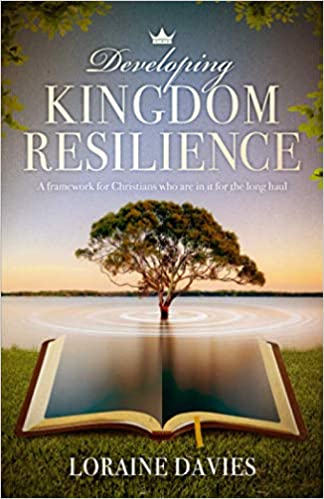 PS: I wrote a book! You can find it here: https://www.amazon.co.uk/Developing-Kingdom-Resilience-Loraine-Davies-ebook/dp/B08QNCQB4R or here: https://books.apple.com/gb/book/developing-kingdom-resilience/id1545454087 I'd love to know what you think! Habakkuk 1:5, ESV
“Look among the nations and see, wonder and be astounded. For I am doing a work in your days that you would not believe if told.” We've heard all the expressions: the only constant is change; change is inevitable, growth is optional; be the change you want to see in the world… But no management speak can alter the fact that change is hard on us. Disruption takes its toll. And there is no question we are still navigating our way through the most disruptive event the majority of us will have ever experienced. And I understand from the experts that six or so months into a sustained, unexpected, and unwelcome crisis it is likely many of us will have hit a bit of a wall because, frankly, we have had enough of change. And, that means we can be left feeling a bit lost, a bit low, and uncertain about the future. And, although we know intellectually there is always a bigger picture and God is always at work to bring all things together for our good and to show himself mighty to save, the fact is our emotions may not be lining up with those truths just now. So, the question is how do we get through this when our feelings are all over the place? How do we continue to trust God in these incredibly challenging times? And - praise God - some of the answers and the hope we need right now can be found in the book of Habakkuk. And I’m suggesting there are four invitations from God to us in this season. And, today I want to share one: We are invited to get real. Habakkuk is living in a time of disaster; everything is wrong with his world. Not only is his nation declining spiritually, morally, and socially but he sees a threat coming that will lead to its devastation. And he is weighed down by the things he sees but - more than that - frustrated by the seeming inaction of the Lord. Now Habakkuk’s name means “he that embraces; a wrestler.” And, wrestling is exactly what he does. He grabs hold of God and demands a response from him. “Why aren’t you listening to me? Why aren’t you moving? Why am I having to watch this? I cannot believe what I am hearing!” He's extraordinarily honest emotionally. In fact, it’s all really raw for Habakkuk and he’s so candid that in verses 3 and 13 of chapter one he calls God “idle” and some Hebrew scholars suggest when he says in verse 12 “Are you not from everlasting?” he's not just railing at God, he's insulting him. Habakkuk is so much more honest than some of us. Well, maybe not you, because you’re all lovely. He’s so much more honest than me. Because, I don’t like admitting I’m angry. I box my feelings up. I don’t want to share my mourning and lament. I don’t want to acknowledge I’m finding it tough. And, it’s easy when we’re not being authentic to become very bland in the way we approach God and other people. "Oh, well, I'm sure there’s a purpose in all this..." “I’m sorry you’re upset, let’s put the kettle on.” It's as if we think God is afraid of our emotion, is diminished by our anger, can't cope with our questions, and won't be there for us if we have a little rant. And yet, behaving and thinking that way is absolutely contrary to what he invites us to do. Time and time again in the bible, God invites us to wrestle with him[1], question him[2], ask him for help to understand.[3] In short, to get real. And we don’t have to be afraid of his sensibilities. Jeremiah calls God a deceptive brook.[4] That’s rude. Thomas says he won’t believe Jesus has risen from the dead unless he can put his finger in the holes in his hand and his hand in his side. That’s boorish. And invasive. We are deluding ourselves if we think that God doesn’t have enough grace for our emotions or our questions. And we might find everything we’re experiencing right now really hard to articulate, but he’s even covered that off for us. Romans tells us when we don’t know how to pray the Spirit intercedes for us.[5] “I don’t know what to say to you right now God.” “That’s OK, darling child, my Spirit is going to take what’s in your heart and groan it out and form it into a prayer on your behalf.” That’s phenomenal! There is an invitation from God in Habakkuk in this season to get real. There is tragedy and injustice and pain in the world, and we need to name it for what it is. God is always his authentic self. It’s time for us to be the same. [1] Jacob [2] Isaiah 45:11 [3] James 1:5&6 [4] Jeremiah 15:18 [5] Romans 8:26 So, I want you to imagine you are a villager in a region called Gerasenes and you are alive during Jesus ministry. And - in the main - you have a pretty ordinary, quiet life disturbed only by the shouting and wailing of the man who lives among the dead.
He has been there as long as you can remember. Naked, shouting, cutting himself with the sharpened edges of stones that lay about the tombs. His cries can be heard night and day. He is stronger than any man you’ve ever known. People have tried to tie him up in the past, but he breaks every chain. Except, of course, the chain that has affected his mind and broken his spirit. Something powerful and evil has imprisoned him, and he is tormented. As a village, you’ve come to an uneasy truce with him. He’s allowed to roam free. As long as he does it in the cemetery and the hills. As long as he doesn’t have anything to do with you. But the crying and wailing. That’s the constant backdrop to your daily life. Until one day it stops. It takes you a little while to realise - you’ve been so used to the endless noise that you’ve learned to block it out - but now it isn’t there anymore and you want to know why. So you head to the tombs. And there you see a man called Jesus. And then you see him. You see the man who used to wail and shout and cry, the man who used to cut himself, the man who lived among the dead. But now he is dressed and in his right mind. Your neighbours tell you what they witnessed. The man had been full of evil spirits - it was the spirits that had tortured him - and Jesus had told the evil spirits to go. The spirits that had caused the man so much pain and anguish, that had bound him up and led to him to try to destroy his own body for so long, had been told to go away by Jesus. And they had gone. The man is completely healed and completely free, and it is Jesus who did that. What do you think your response would be? Would you be amazed? Excited? Want to know more? They were afraidWell, what I’ve asked you to imagine is that you’re part of a story we read in Mark chapter 5. And Mark tells us the villagers see the man dressed and in his right mind, but they’re not amazed, or excited, and they certainly don’t want to know more. In Mark 5:15 it says, “they were afraid.” They see Jesus, they see the outcome of a miraculous healing, and they are afraid. So afraid they beg Jesus to leave – not just their village, the whole region. And, this morning I want to look very quickly at how this story tells us that the villagers were wrong to be afraid. Because when it comes to moving into everything Jesus has for us, there is never a reason to be afraid. And, if you know me at all you’ll know I like a bit of evidence to support the statements I make. And the good news is… there are four pointers in this story, four pieces of evidence that help us to see why we don’t have to be afraid of what Jesus has for us. And the first bit of evidence is: Jesus goes out of his way to include usJesus goes out of his way to include us. When Jesus sets out to cross the Lake of Galilee he deliberately chooses to take himself to an area no-one really expected him to go to. Jesus was a Jew and Gerasenes was not a Jewish region; it was a gentile region. At that point in his ministry many of Jesus’ followers believed he had come only to save the Jews. But Jesus goes to great lengths to show them the nature of the Kingdom he wants to bring in. It is a Kingdom for everyone. No-one is excluded from it. And he presses the point further by dealing face-to-face with the man possessed by the evil spirits. Meeting him would have made Jesus - according to Jewish custom - ritually unclean. But Jesus doesn’t hesitate to meet the man where he needs to be met. You know, sometimes our experiences or the things that people have said about us can bind us up in so much fear that we miss the fact that Jesus wants us in his Kingdom. We exclude ourselves from receiving what Jesus has for us by thinking we have the wrong background, live in the wrong house, have the wrong job, look the wrong way, went to the wrong school... But Jesus doesn’t exclude us. He meets us where we need to be met. Jesus doesn’t differentiate between Jew Gentile, male female... It is not that he doesn’t know who we are or see us as we are. It is simply that there is an equality in his Kingdom that transcends anything we will experience anywhere else. Jesus is always closing gaps. Primarily between us and God but also between each other. We don’t need to be afraid of what Jesus has for us because he goes out of his way to include us. Don’t let fear stop you from being included by Jesus this morning. He wants you! The second piece of evidence that helps us to see why we don’t have to be afraid of what Jesus has for us is in the way that he deals with the possessed man. Jesus wants us to be freeJesus heals the man possessed by demons because he loves him and wants to set him free. The man isn’t an object lesson. He is a loved child of God and Jesus wants to see him liberated so he can know that truth. And the whole point of the gospel is that it emancipates us because we know we are loved by God. It frees us to be the people God always intended us to be. It stops up from comparing ourselves to others. It tells us we are neither superior nor inferior. It instructs us to live in submission, not in a hierarchy. It empowers us to be servants. It elevates us all to the status of co-heirs with Christ. Some of us need to let Jesus liberate us from the things that bind us and the only way we are going to do that is to understand our identity is in him and nothing else. You don’t need the validation of other people. You don’t need their permission to be you. Jesus wants you to be free to be everything God intended you to be. We don’t need to be afraid of what Jesus has for us because what he has for us is freedom. Don’t let fear stop you from being freed loved and by Jesus this morning. Love and liberty are your birthright. The third bit of evidence is – well, let’s just say it’s oblique but it’s there. And it’s around the villagers’ response to change. If Jesus asks us to change it’s because he has more for usThere’s no question there would have been other people who needed healing in that village. Jesus could have done so much more in that place, but the villagers wouldn’t let him. And, I think that was about change. Jesus’ presence threatened to change everything, the thought of change caused fear, and the fear limited Jesus by not allowing him to change anything else. And we can do that, too. We can limit what Jesus wants to do with us because we are afraid of what the change is going to mean. But life with Jesus is never about settling - it’s certainly never about settling for less than he has for us. And, yes, change is challenging but we live in the promise that God works all things together for our good. A few weeks ago we heard a number of prophetic words and there was a lot of challenge to change in them. Be holy, be reconciled, put things down, don’t have other gods, draw closer... The Holy Spirit is asking us to change. And there is no need to be afraid because any change Jesus initiates is going to be for our good. He has more for us. Don’t let fear prevent you from letting Jesus change you this morning. You’ll love what he does with you after he’s done it! The final evidence that we don’t have to be afraid of what Jesus has for us comes at the end of the story. The response of the man who is healed is to want to travel around with Jesus. And who can blame him? But, Jesus says ‘no’ and then tells him what he should do instead. In verse 19 he says, “Go home to your own people and tell them how much the Lord has done for you, and how he has had mercy on you.” And Mark tells us the man does exactly that and the people in the ten Greek cities in the region are amazed to hear what Jesus has done for him. Jesus helps us find our place, our people, and our purpose.The man gets to go HOME. Can you imagine what that must have felt like for him? All the years of isolation and the first thing he gets to do is go home to his people. Jesus is always concerned with helping us find our place. And he knows that if we find our place we invariably find our purpose. At Jesus’ instruction the healed man finds his purpose as he shares his extraordinary testimony. We don’t need to be afraid of anything Jesus has for us because he helps us find our place, our people and our purpose. Don’t let fear stop you from finding your place, people and purpose in Jesus this morning. One last thingOne last thing - and this is important – it is possible for us to tell Jesus to leave us alone as emphatically as the villagers did. And if we do that, he won’t press the point. He will still be Jesus. He will still love you and long for you to experience everything he has for you. But he won’t outstay his welcome. He won’t force you to let him stay around. Just like the villagers, you get to choose how much of Jesus you want in your life. The villager’s fears were unfounded. Don’t let your fear prevent Jesus from including you, freeing you, changing you, and finding your place and purpose. |
Author"Life is short; eat dessert first." Loraine Davies Archives
October 2023
Categories |



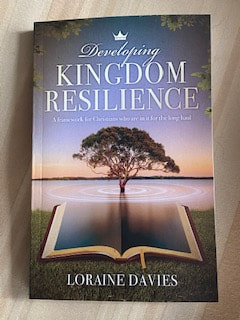
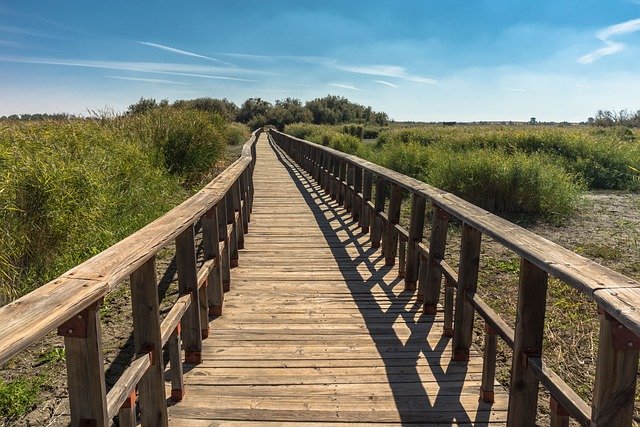




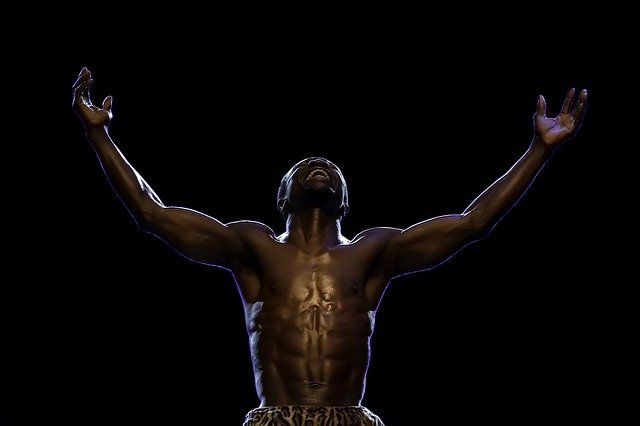


 RSS Feed
RSS Feed